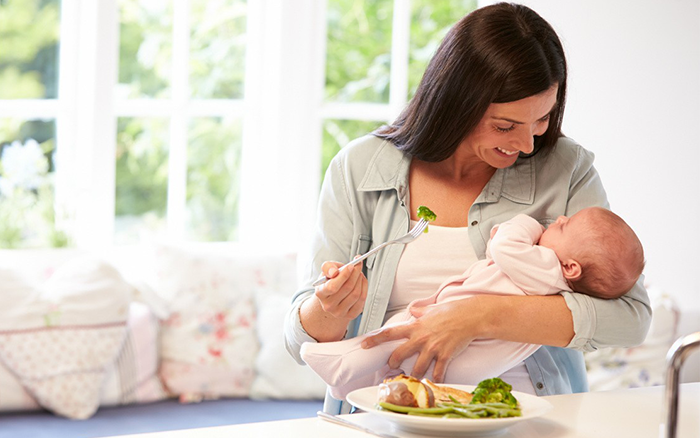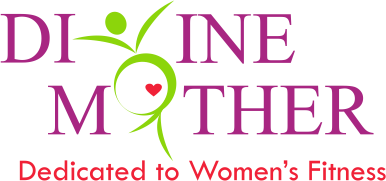
- October 14, 2021
- Comments: 0
- Posted by: Dr. Anushri Shah

You’ve spent the previous nine months worrying about what you ate and drank in order to support your baby’s growth, and now that you’re breastfeeding, you should be aware of certain key questions.
It is important for mothers to eat regularly when nursing in order to obtain necessary nutrients and to promote breast milk production. While not all newborns react to the same foods, here are ten foods to avoid while breastfeeding your baby.
Can I Eat? Obviously No!
After eating certain meals, some babies get irritable and gassy. If you see a pattern like this, it’s better to stay away from that food for a time. So below is the list of foods to avoid when breastfeeding.
Chocolate
Chocolate contains theobromine, which has a comparable effect to coffee when consumed. Even though people enjoy chocolate, they should limit their intake during nursing. If you see that your child is becoming constantly irritable as a result of his or her chocolate-eating, it is best to avoid it. Only by monitoring your baby’s behavior can you determine how much chocolate you can consume. If the mom eats more than 750 mg of theobromine per day and has sleep problems, the infant may show irritable and unpredictable behavior.
Tea
While most of us consider caffeine with coffee, the reality is that tea includes caffeine as well, and too many cups of chai might cause problems for your infant. Tea might also make it difficult for your body to absorb iron. If you must have a cup of tea, do so after eating iron-rich meals such as meat or leafy greens, or while taking iron supplements.
Coffee
We see you need your coffee now that you haven’t gotten any sleep, so please accept our apologies. While a little amount of caffeine may be OK, it’s essential to remember that caffeine does pass into your breast milk. Because a baby’s body isn’t equipped to absorb caffeine as rapidly as an adult’s, if you’re hoping for a speedy nap, save your coffee till after the baby has fallen asleep.
Alcohol
Never consume alcohol when pregnant. In certain situations, even occasional drinking is prohibited. Alcohol tends to cross the placenta and impede the growth of your kid in a variety of ways. It may cause physical, mental, or developmental problems in infants. The majority of obstetricians will advise you not to consume alcohol on the day you conceive. It’s just as vital to avoid alcohol during breastfeeding as it is throughout pregnancy.
Dairy Products
Cow milk allergy may exist in certain infants. The allergens that have entered the breast milk upset the infant when the mother drinks cow milk or consumes dairy products. If your infant develops symptoms such as colic or vomiting after eating dairy products, you should avoid eating them for a period. Other signs and symptoms include eczema, skin problems, and sleep disturbances. Children who are lactose intolerant also have a soy allergy.
 Citrus
Citrus
Citrus fruits are a great source of Vitamin C, but their acidic components might upset a baby’s stomach. They can’t deal with these acid components since their gastrointestinal tract is immature, leading to grumpiness, diaper rashes, spitting up, and other issues. However, you do not have to exclude citrus fruits entirely from your diet. It’s OK to have one grapefruit or orange each day. If you decide to eliminate them entirely, you should replace them with vitamin C-rich foods such as mangoes, papayas, and pineapples.
Wheat
If your infant has bloody stools, gluten intolerance might be the reason. Wheat-related irritability and stomach pains are other signs of wheat-related problems. The easiest method to figure out whether wheat is a problem, like dairy, is to go on an elimination diet. Some mothers prefer to eliminate all frequent issue foods and gradually reintroduce them one by one. Slow reintroduction aids in pinpointing the allergy or intolerance and allows other foods to return to the cycle.
Peanuts
If your family has a history of peanut allergies, wait until your infant has been weaned before consuming peanuts. Breast milk can transfer allergic chemicals found in peanuts and tree nuts. If you’re not sure if your child has a nut allergy, look for wheezing, redness, or rashes in your child; these are all symptoms of an allergic response.
Garlic
You obviously know to avoid garlic, but did you realize that the scent of garlic may also be found in milk? If your infant is hesitant to breastfeed or pulls away from you while nursing to make faces, examine if it corresponds with the last time you ate food spiked with garlic. While most of us believe that garlic improves everything, newborns’ palates haven’t yet developed enough to enjoy it.
Spices
Spicy foods annoy some newborns, while they don’t bother others. Only a smidgeon of pepper is needed to cause harm to a few infants. These infants are going to be fussy for a long time. If you find your infant is uncomfortable with the number of spices in your diet, it’s advisable to reduce the amount.
Processed Food
In addition to diet sodas and sugar-free meals, processed foods of any sort should be avoided not only for the health of the infant but also for the mother’s health. Artificial flavors, preservatives, and chemicals of all types abound in such goods, and we have no idea what’s in them! None of them are beneficial for anyone, so avoid them, especially if you’re nursing.
Parsley & Peppermint
Parsley is a wonderful garnish, and peppermint makes a great tea; the problem is that both of these herbs have the potential to deplete your supply. They shouldn’t be an issue if taken in tiny amounts, but be mindful of any drops after eating, especially if your kid is approaching a growth spurt and will be hungry more than normal.
Corn
Corn allergy is a typical occurrence in infants and toddlers. In newborns, this might result in rashes and discomfort. If your infant has allergic reactions to corn, remove it from your diet.
Sushi
Sushi is safe if it does not include mercury-rich seafood. It is risk-free because listeria germs found in undercooked meals are not easily transferred through breast milk. If you’re nursing and want to eat sushi with low-mercury fish, bear in mind that you shouldn’t consume more than three meals per week. Salmon, catfish, sole, pollock, trout, and tilapia are mercury-free fish.
Fish
You don’t have to completely avoid fish, but you should be picky about the sorts of seafood you consume. Some fish have high levels of mercury, which can contaminate your milk supply. Everything should be OK if you follow the same guidelines for eating fish as you did while you were pregnant.
Conclusion
Your kid may be sensitive to only a few of these foods, or he may not be allergic to any of them at all. It may not be essential to quit eating all of the food you should avoid while breastfeeding now that you know what to avoid. However, before eliminating any foods from your diet, consult your doctor. This is because, for example, excluding all dairy products may result in a nutritional imbalance, necessitating consultation with a dietitian for a suitable alternative. you can also read about: Revealing The Reasons For Pregnancy Cravings!

